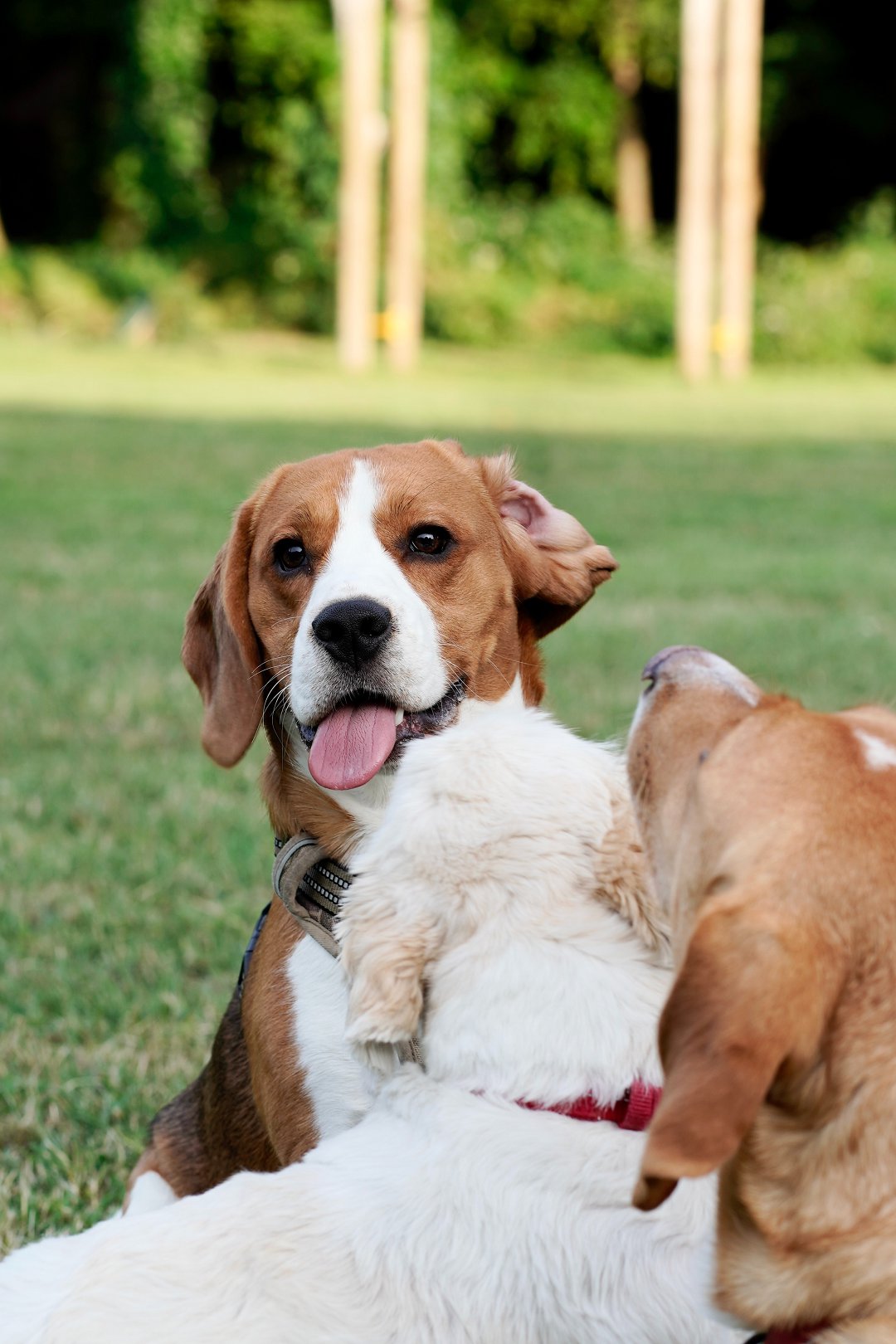Table of Contents
- 1 Introduction: The Importance of Training for a Service Beagle
- 2 Essential Skills and Behaviors for a Service Beagle
- 3 Specialized Training Techniques and Certifications for Service Beagles
- 4 FAQs About: What Training is Required for a Service Beagle?
- 4.1 How important is training for a service beagle?
- 4.2 What are the essential skills and behaviors a service beagle should learn?
- 4.3 Are there any specialized training techniques for service beagles?
- 4.4 certification necessary for a service beagle?
- 4.5 Can I train my service beagle on my own?
- 4.6 How long does it take to train a service beagle?
Introduction: The Importance of Training for a Service Beagle
Have you ever wondered what training is required for a service beagle? Well, you’ve come to the right place! Training is a crucial aspect when it comes to service beagles, as it enables them to fulfill their important roles in assisting individuals with disabilities. Service beagles undergo specialized training to acquire essential skills and behaviors that allow them to perform various tasks to aid their handlers. In this article, we will delve into the specific training techniques and certifications that service beagles need to possess. So, let’s dive in and discover the world of training for these incredible service dogs!
Training a service beagle involves a combination of obedience, behavior, and command training. These dogs are trained to respond to specific cues and commands, enabling them to assist their handlers in various ways. From retrieving objects to opening doors, service beagles are taught a wide range of tasks tailored to their handler’s specific needs. Additionally, they are trained to behave appropriately in public settings, ensuring they maintain good manners and follow commands even in distracting environments. The next section will explore the essential skills and behaviors that a service beagle should possess, shedding light on the remarkable abilities of these highly trained dogs.
Essential Skills and Behaviors for a Service Beagle
When it comes to training a service beagle, there are several essential skills and behaviors that they need to learn in order to effectively assist their handler. These skills and behaviors are crucial for the beagle to perform their tasks and ensure the safety and well-being of their handler. Here are some of the key skills and behaviors that a service beagle should be trained in:
1. Obedience Training
Obedience training is the foundation for any service dog, including beagles. This training teaches the beagle to respond promptly and reliably to basic commands such as sit, stay, come, and heel. It also helps the beagle to develop good manners and self-control in various situations.
2. Public Access Training
Public access training is essential for a service beagle to be able to accompany their handler in public places. This training teaches the beagle how to behave appropriately in different environments, such as restaurants, stores, and public transportation. The beagle should be able to remain calm and focused, ignoring distractions and not causing any disturbances.
3. Task Training
Service beagles are trained to perform specific tasks to assist their handler with their disability. These tasks can vary depending on the handler’s needs and may include retrieving items, opening doors, turning on lights, or alerting to specific sounds or medical conditions. The beagle should be trained to perform these tasks reliably and on command.
4. Behavior Training
In addition to specific tasks, a service beagle should also be trained to exhibit appropriate behavior at all times. This includes being well-mannered, friendly, and non-aggressive towards people and other animals. The beagle should also be trained to remain calm and focused, even in stressful or challenging situations.
5. Handler Assistance Training
Service beagles are not only trained to perform tasks but also to provide emotional support and assistance to their handler. This includes being attentive to their handler’s needs, responding to cues and signals, and providing comfort and companionship. The beagle should be trained to be responsive and attentive to their handler’s physical and emotional state.
In conclusion, training a service beagle requires teaching them essential skills and behaviors such as obedience, public access, task training, behavior training, and handler assistance. These skills and behaviors are crucial for the beagle to effectively assist their handler and ensure their safety and well-being. By providing the necessary training, a service beagle can become a valuable and reliable companion for individuals with disabilities. In the next section, we will explore specialized training techniques and certifications that can further enhance a service beagle’s abilities.
Specialized Training Techniques and Certifications for Service Beagles
When it comes to training a service beagle, there are specialized techniques and certifications that can help ensure they are well-prepared for their important role. These techniques and certifications go beyond basic obedience training and focus on the specific tasks and behaviors that a service beagle needs to perform to assist their handler effectively. Here are some of the key aspects of specialized training for service beagles:
1. Task Training
Service beagles are trained to perform specific tasks that are tailored to their handler’s needs. These tasks can vary depending on the handler’s disability, but can include tasks such as:
- Retrieving medication or other items
- Opening doors or cabinets
- Assisting with balance or mobility
- Alerting to sounds or smells
- Providing deep pressure therapy
Task training involves teaching the beagle how to perform these tasks reliably and on cue. This training is often done using positive reinforcement techniques, where the beagle is rewarded for successfully completing the task.
2. Public Access Training
Service beagles need to be well-behaved and comfortable in various public settings. Public access training focuses on teaching the beagle how to behave appropriately in places such as restaurants, stores, and public transportation. This training includes:
- Ignoring distractions and focusing on their handler
- Walking politely on a leash
- Being calm and well-mannered in crowded or noisy environments
Public access training is important to ensure that the service beagle can accompany their handler wherever they go, as required by law.
3. Certification
Certification is not required by law for service beagles, but it can provide additional credibility and recognition for the team. There are various organizations that offer certification programs for service beagles, such as the International Association of Assistance Dog Partners (IAADP) and Assistance Dogs International (ADI). These certifications typically involve an evaluation of the beagle’s skills and behaviors, as well as an assessment of the handler’s ability to effectively work with the beagle.
Certification can also provide benefits such as access to certain public places or exemptions from certain housing restrictions. However, it’s important to note that certification requirements can vary between organizations and jurisdictions.
In conclusion, specialized training techniques and certifications play a crucial role in preparing a service beagle for their important role. Task training ensures that the beagle can perform specific tasks to assist their handler, while public access training ensures that they can behave appropriately in various public settings. Certification can provide additional credibility and recognition for the team. By undergoing these specialized training techniques and obtaining certifications, service beagles can be well-prepared to provide invaluable assistance to their handlers.
FAQs About: What Training is Required for a Service Beagle?
How important is training for a service beagle?
Training is crucial for a service beagle as it helps them develop the necessary skills and behaviors to assist their handlers effectively. It ensures they can perform tasks, follow commands, and behave appropriately in various situations, including public access.
What are the essential skills and behaviors a service beagle should learn?
A service beagle should be trained in obedience, such as walking politely on a leash, responding to basic commands, and having good manners in public. They should also learn specific tasks related to their handler’s disability, such as retrieving items, opening doors, or providing emotional support.
Are there any specialized training techniques for service beagles?
While training techniques may vary, positive reinforcement is often the most effective approach for service beagles. Reward-based training methods, using treats or praise, can motivate them to learn and reinforce desired behaviors. Consistency, patience, and clear communication are key.
certification necessary for a service beagle?
While certification is not legally required for a service beagle, it can be beneficial. Certification provides credibility and ensures that the dog has undergone proper training and meets specific standards. It also grants access to certain public places that may require certification.
Can I train my service beagle on my own?
While it is possible to train a service beagle on your own, seeking professional assistance is highly recommended. Professional trainers have experience in training service dogs and can guide you through the process effectively. They can also help tailor the training to your specific needs.
How long does it take to train a service beagle?
The training duration for a service beagle can vary depending on factors such as the dog’s age, previous training, and the complexity of tasks required. On average, it may take several months to a year for a service beagle to complete their training and be fully prepared to assist their handler.






Leave a Reply